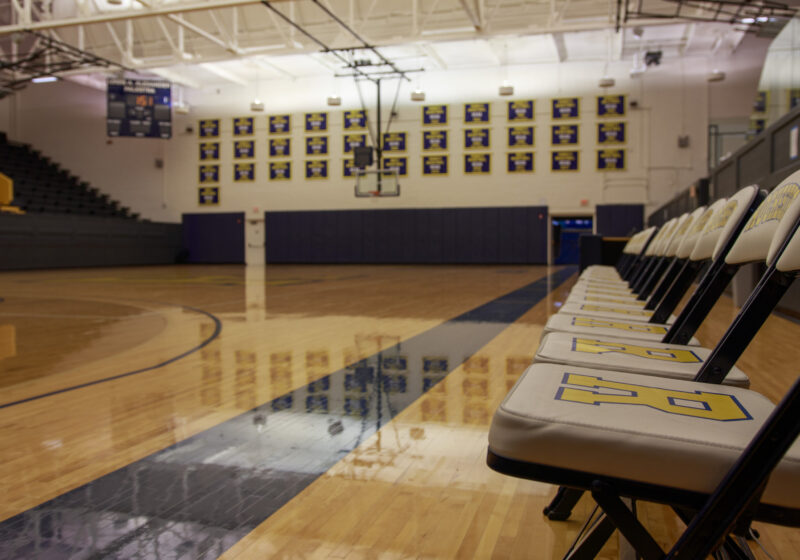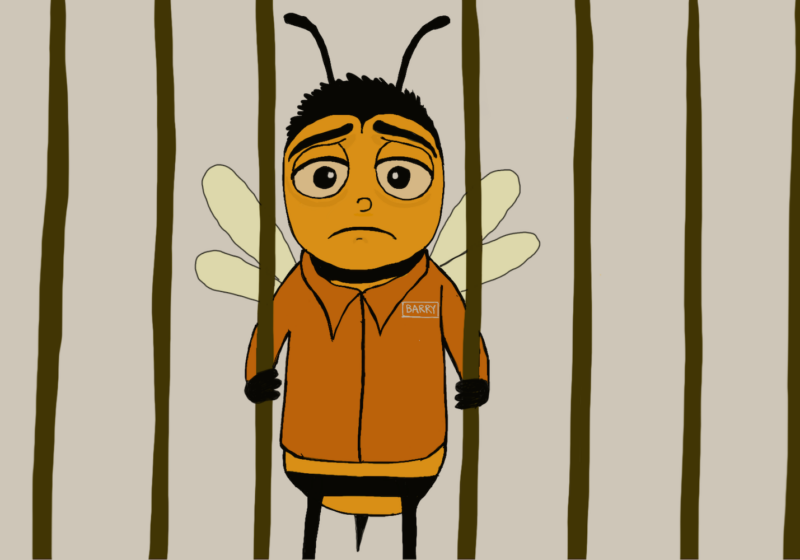On Saturday, Feb. 18, Mac McClung waved his hands in the air as he mouthed the words, “It’s over.” The 6’2 24-year-old, wearing his high school jersey that read “Gate City,” had just touched his head to the rim as he slammed down a 540-degree reverse dunk. The color commentators, composed of NBA legends like Shaquille O’Neal, Draymond Green, and Kenny “The Jet” Smith echoed those same words: “It’s over.” Mac McClung had shocked the world and handily won the NBA Slam Dunk Contest. But who was he?
On the Tuesday before the contest, McClung was signed by the Philadelphia 76ers on a two-way contract to play for their G-League counterpart, the Delaware Blue Coats. Mac would be the first player to “play-up” from the minor leagues for the NBA All-Star Weekend. After his win, there were cries that the Virginia native had just revived the Dunk Contest. But why did it need revival?
The Slam Dunk Contest was once a different entity. NBA legends, namely Michael Jordan, Dominique Wilkins, Kobe Bryant and Vince Carter — NBA legends —highlighted the champions of the 80s and 90s. So why is a G-Leaguer, beyond winning the contest, even competing?
The landscape of professional sports, in particular the NBA and the NFL, has profoundly changed over the past two decades. In recent years, the NBA All-Star Game has undergone even more significant changes. In 2018, the league scrapped the traditional East vs. West format in favor of a draft-style system where two captains select their teams from a pool of players voted in by fans, players, and coaches. The change was made in an effort to make the game more competitive, as previous All-Star Games had become little more than glorified pickup games. In addition to the new format, the NBA has also made changes to the game itself, implementing a new scoring system for the All-Star Game, where the fourth quarter was played under a “target score” system and the first team to reach a certain number of points (determined by adding 24 to the leading team’s score at the end of the third quarter) would win the game.
It’s not just the All-Star Game. The league has been using these new scoring systems in the All-Star Game as a trial run to see if they can make regular season play more captivating. Players average less minutes, take more load management, and play games like they matter less. Relative viewership in the NBA has dropped, and the game is played differently. More people turn to college basketball to watch players who play like they have something to prove. Fans and media members alike are calling for more G-Leaguers and amateurs to compete in the Slam Dunk Contest. The NFL scratched the Pro-Bowl as a whole and moved to various challenges and flag football games. Dwindling attendance and interest in the NBA is alarming, and like how we saw the issues start in the NBA All-Star game and spillover to the regular season, we should only expect the same in the National Football League.
How long will it be until we have to make significant changes to the way we structure the NBA and NFL alike, to appease our players and please our fans? How long until we see these changes make an impact at the college level? Will the Yellowjackets start making the same changes we see in the NBA?




